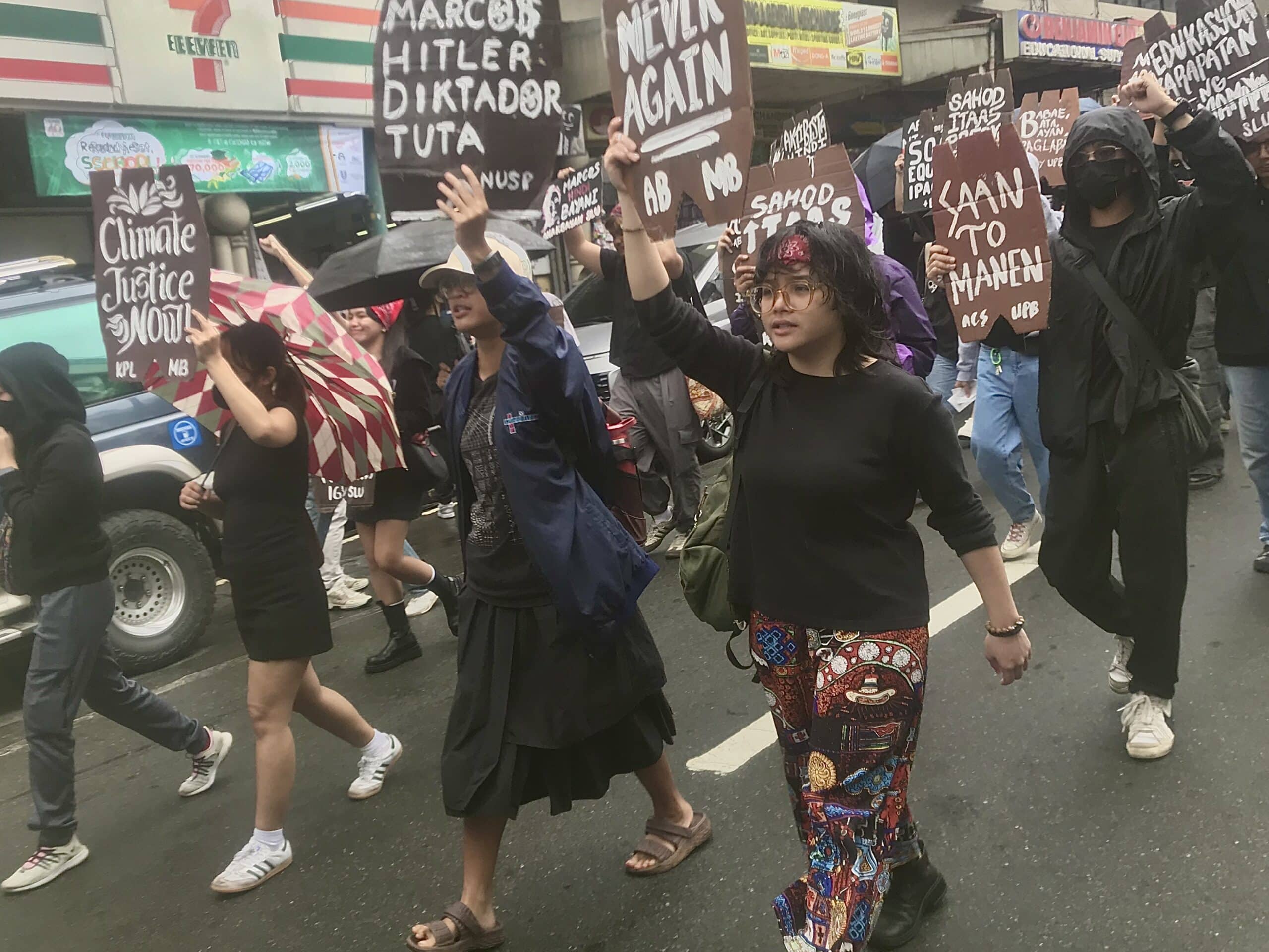New Baguio judge takes over anti-terror case

YOUTH VOICE Baguio’s streets have turned into platforms for protest actions by the city’s youth and student organizations. This rally was staged on Sept. 21 to mark the 52nd anniversary of the declaration of martial law. —VINCENT CABREZA
BAGUIO CITY — A new judge has taken over the only lawsuit questioning the government’s terrorist designation of four indigenous Filipino activists, which the Supreme Court allowed to proceed despite new rules governing the litigation of antiterrorism issues.
Judge Hilario Belmes of Baguio Regional Trial Court Branch 78 has been assigned the ongoing trial of the Anti-Terrorism Council (ATC) and the Anti-Money Laundering Council (AMLC), which were sued by Baguio-based activists Windel Bolinget, Stephen Tauli, Jennifer Awingan Taggaoa and Sarah Abellon Alikes for classifying them as terrorists on July 7 last year “without due process.”
Belmes is taking the helm midtrial after Judge Cecilia Corazon Dulay-Archog of Baguio RTC Branch 7, recused herself in an Oct. 31 order following a motion for inhibition filed by the Office of the Solicitor General.
READ: Baguio activists all set to challenge ‘terrorist’ tag
Dulay-Archog had been steering the trial since September when the SC in February directed her to continue hearing the activists’ petitions for certiorari and prohibition and for a writ of preliminary injunction against ATC, represented by Executive Secretary Lucas Bersamin, and the AMLC through Bangko Sentral ng Pilipinas governor Eli Remolona Jr.
Article continues after this advertisementAccording to the high court, Archog acquired jurisdiction over the case after it mandated the Court of Appeals to handle all cases involving antiterrorism grievances through Administrative Matters No. 22-02-19-SC, which took effect on Jan. 15.
Article continues after this advertisementThe activists had just concluded presenting their evidence during the third trial day on Sept. 23, when Solicitor General Menardo Guevarra and 16 associate solicitors petitioned Archog in the first week of October to stand down from the case for allegedly displaying bias.
Archog’s order stressed that her decision to step away from the case should not be taken as an admission of bias.
Prejudice?
“Granting the motion to voluntarily inhibit on the ground of bias and prejudice will lead the parties and all concerned to believe that such charges of bias and prejudice may after all be true … Voluntary inhibitions for reasons other than the judge being unable to try the case with impartiality have always been an irritant among other judges,” she wrote.
“[But] a denial of the instant motion [for inhibition] can be interpreted as proof of bias, especially if the decision is not to their liking,” she added.
The OSG had cited a comment the judge made to government solicitors which Dulay-Archog repeated in her order: “The burden of proof lies on you, to prove that there was no grave abuse of discretion on the designation of the petitioner—it’s not on the petitioner.”
The OSG asserted that Dulay-Archog “prejudged the outcome of the proceedings” because the OSG had not yet presented its set of evidence and witnesses, the order said. The OSG’s turn to defend ATC’s Resolution No. 41 (or the terrorist designations of Bolinget and the three other activists) would have taken place on the subsequent trial day in October.
“A judge has both the duty of rendering a just decision and of doing it in a manner completely free from suspicion as to its fairness and as to his or her integrity,” Dulay-Archog said, adding she “painfully realizes that she is indeed a captive of vagaries and a victim of the whims and caprices of chance, and she feels her ability to maintain her impartiality … has been put in serious doubt.”